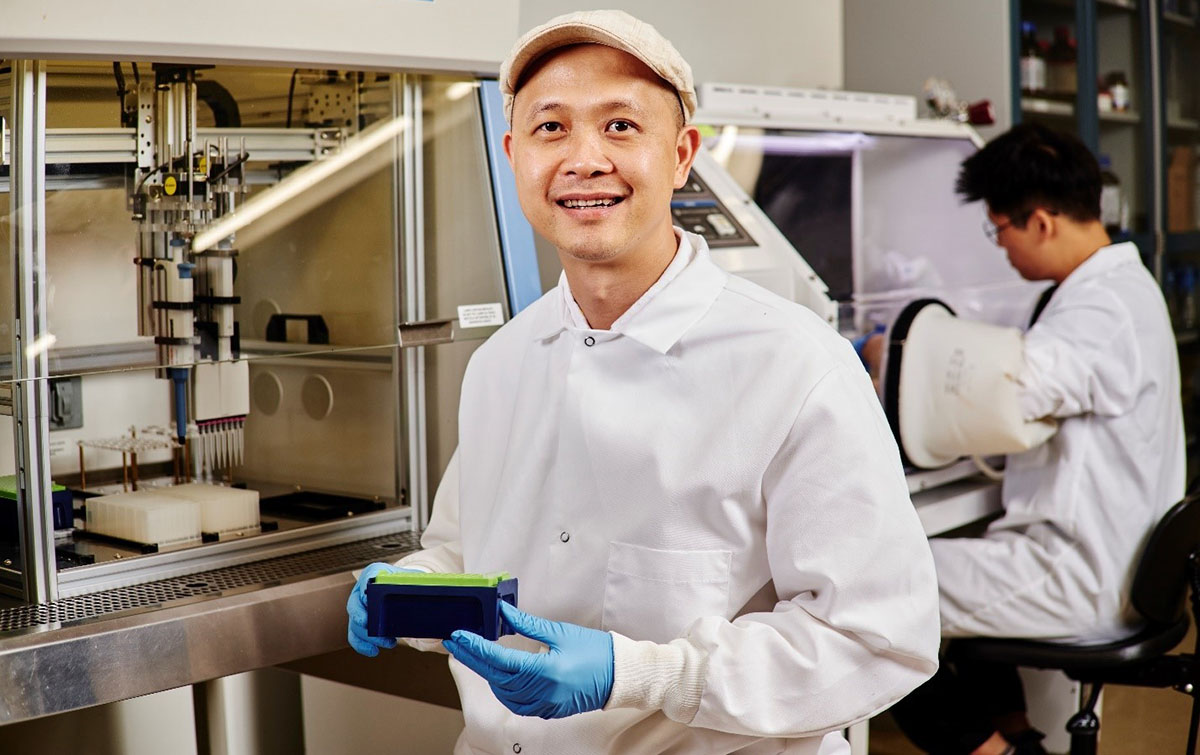Trinh Lab’s New Yeast Strain Upcycles Stubborn Plastics
The Tennessee River is one of the most plastic-polluted rivers in the world. Most of the waste is polyolefin, a class of plastics made from fossil fuels and used for everything from grocery bags to car bumpers.
“Due to their complexity, polyolefin wastes are resistant to natural degradation and are difficult to recycle,” said Professor Cong T. Trinh, the Ferguson Faculty Fellow in Chemical Engineering.
Trinh is a metabolic engineer, selecting and tweaking cellular processes for biotechnological use. He is currently working towards creating a line of synthetic modular cells with exchangeable, “plug-and-play” genetic modules. Like a phone downloading an app, these cells could quickly gain the ability to make molecules of interest or use different food sources—including polyolefins.
Trinh’s team has been looking for naturally occurring (or “wild type”) cells with the ability to digest polyolefins. Once they discover the process the wild microbes use, they can copy the corresponding DNA ‘module’ into synthetic cells to efficiently upcycle polyolefin trash.
One promising candidate is Yarrowia lipolytica, a yeast species with easily manipulated genes and a natural ability to grow on unlikely materials and in extreme environments.
In a recent study funded by the University of Tennessee-Oak Ridge Innovation Institute Seed Fund and the Department of Energy’s Biological and Environmental Research program, Trinh and his collaborators at UT and ORNL grew Y. lipolytica in small bioreactors where polyolefin was the only food source. In fewer than ten generations—a blink in evolutionary time—the adapted yeast was growing twice as densely as its wild-type ancestor.
Fueling their own metabolism with plastic monomers (molecular building blocks) is only the first step; to truly “upcycle” the polyolefins, the yeasts must convert those monomers into materials humans can use. Even without specialized modules, the new Y. lipolytica strain fulfilled that task.
“These newly adapted microbes were able to produce high-demand biochemicals, like certain organic acids and lipids that have uses in many industries like food production,” Trinh said. “They can also be utilized as monomers for biodegradable plastics.”
Trinh and his team traced the digested plastic molecules through the yeasts, identifying the enzymes and key processes required to upcycle the polyolefins. With this foundation, Trinh hopes to turn the yeasts into cellular ‘factories’ that transform pollution into useful materials.
“These yeasts could be used to make biodegradable plastics at room temperature and pressure,” he said. “That would help us make the current plastic and recycling industries more sustainable, tackle the plastic waste problem, and reduce our reliance on fossil fuels all at once.”
Contact
Izzie Gall (865-974-7203, egall4@utk.edu)
